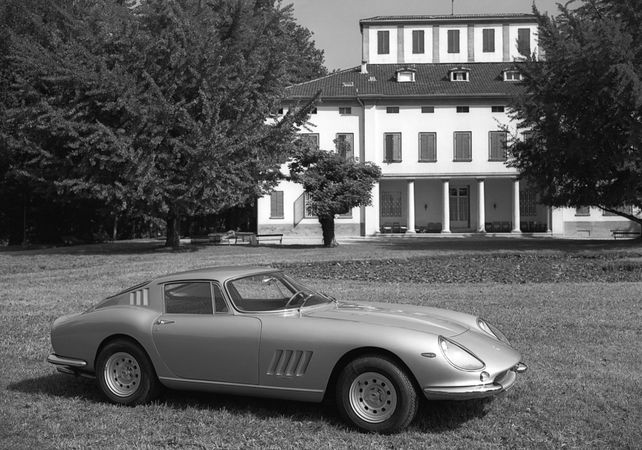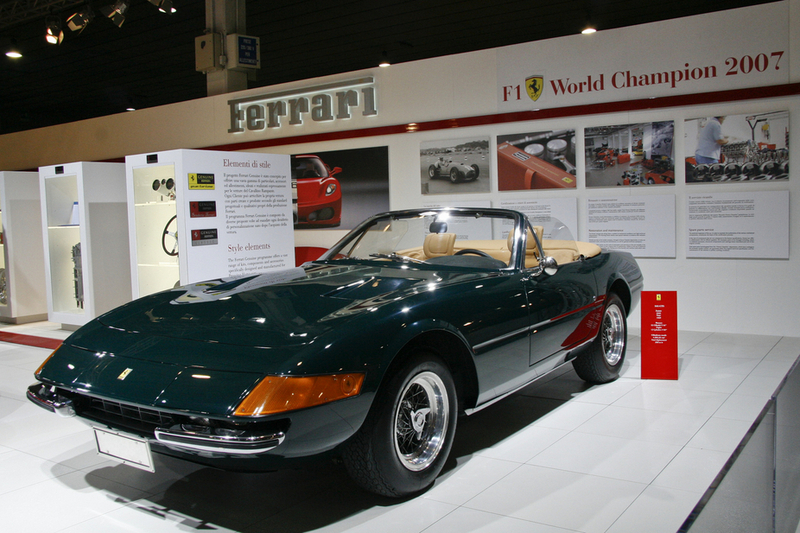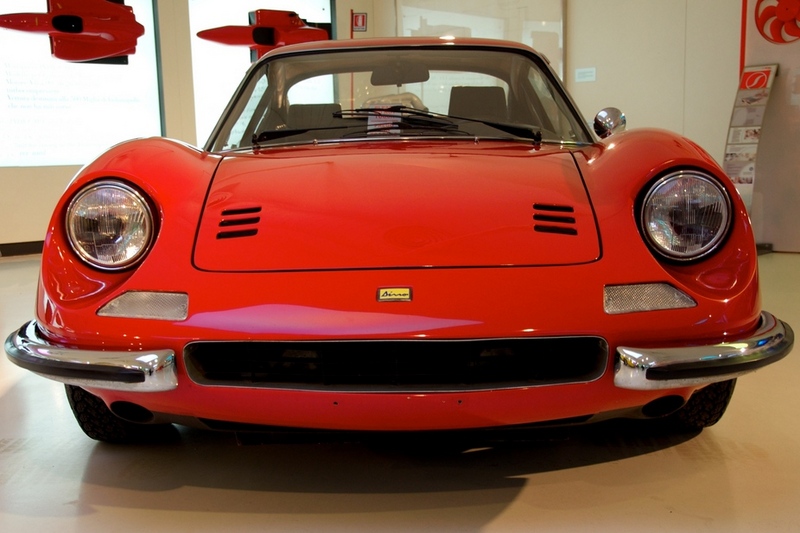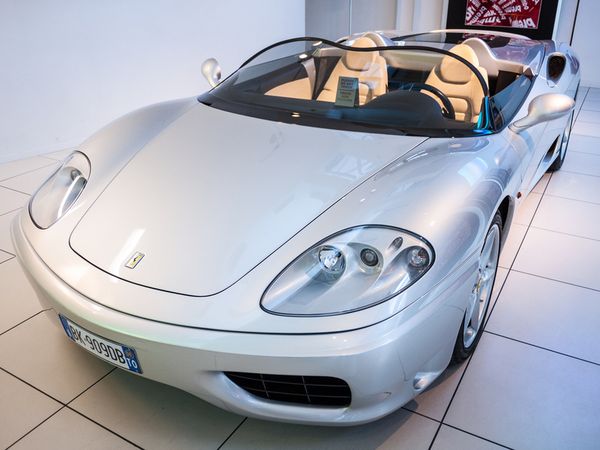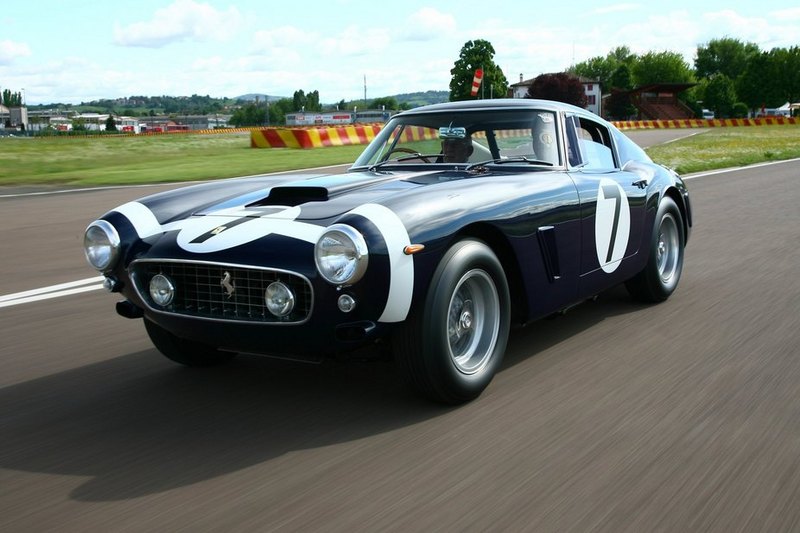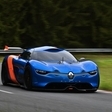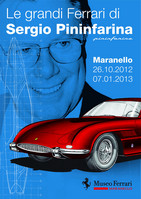|
Send this page to a friend! Fill in the form bellow | ||
news
Pininfarina Exhibit at Ferrari Museum Extended Until February
Exhibit highlights famous Pininfarina-designed Ferraris
The Ferrari FerrariItaly, 1947 > present233 models
FerrariItaly, 1947 > present233 models
5131 photos
37 videos
Museum at Maranello is extending its exhibit on Pininfarina-designed cars. It originally opened on October 26 and was originally slated to end on January 7. However, it has been so successful that it will be extended to February 24.
The exhibit takes up three halls of the Ferrari Museum and covers 60 years of cars. Each hall is dedicated to a different period of work. The first looks at Pininfarina racecars and includes the 250LM Ferrari 250 LMItaly, 1964 > 19654 photos
Ferrari 250 LMItaly, 1964 > 19654 photos
that was the last overall winner of the 24 Hours of Le Mans from Ferrari in 1965, a 250 SWB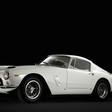 Ferrari 250 GT SWBItaly, 1959 > 19614 photos
Ferrari 250 GT SWBItaly, 1959 > 19614 photos
driven by Stirling Moss and the experimental Formula 1 Sigma from 1968.
The second hall is dedicated to Pininfarina concept cars. The hall includes the Modulo Ferrari ModuloItaly, 1971 > present2 photos
Ferrari ModuloItaly, 1971 > present2 photos
, P6 Ferrari P6Italy, 1968 > 19681 photo
Ferrari P6Italy, 1968 > 19681 photo
and the Pinin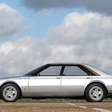 Ferrari PininItaly, 1980 > present1 photo
Ferrari PininItaly, 1980 > present1 photo
four-door.
The final hall contains Pininfarina GT cars, including the original prototype for the Berlinetta Boxer Ferrari 512 BBItaly, 1976 > 19814 photos
Ferrari 512 BBItaly, 1976 > 19814 photos
.
There is a display that shows a previously unaired video interview with Sergio Pininfarina. In the interview, he talks about his relationship with Enzo Ferrari and di Montezemolo. A collage of every Ferrari from Pininfarina will be projected against a wall and includes previously undisclosed images from the Pininfarina family.
Ferrari P6
Created by Pininfarina designer Leonardo Fioravanti in 1968 the Ferrari P6 is a research prototype counted with a very advanced design for its time, which would inspire the future forms of Ferraris like the Boxer. It has a central tube that serves like a “dorsal spine”.
Ferrari Pinin
At the 1980 Turin Motorshow, Pininfarina celebrated the company's fiftieth anniversary in style and created a four door Ferrari named after his father and the founder of the company, Battista 'Pinin' Farina. Obviously the Pinin's most striking feature are the four doors and it was Leonardo Fioravanti's job to create the show car.
Ferrari 250 LM
The mid-engined 250 Le Mans looked every bit the prototype racer but was intended to be produced as a road-going GT. The 250 LM appeared in 1963 and sported Pininfarina's bodywork. Ferrari was unable to persuade the FIA that it would build the 100 examples required to homologate the car for GT racing. Eventually, 32 LMs were built up to 1965.
Ferrari 275 GTB/4
With the 275 Pininfarina designed a body that was a graceful evolution of the car's predecessor, the 250. It introduced Ferrari's "transaxle" concept, where the transmission and rear axle are integrated. Introduced in 1966 in Paris and built by Scaglietti, the 275 GTB/4 featured new bodywork and was the first Ferrari not to be offered with wire wheels.
Ferrari 365 GTS/4 Daytona
Although it was also a Pininfarina design, as with many previous Ferrari road cars (by Leonardo Fioravanti), the 365 GTS/4 was radically different. Its sharp-edged styling resembled a Lamborghini more than a traditional Pininfarina Ferrari. But unlike Lamborghini's then-new, mid-engined Miura, the Daytona was a traditional front-engined, rear-drive car.
Ferrari Dino 206 GT
Unveiled in January 1968 at the Brussels Salon the production Dino 206 GT had the soft edges and curving lines typical of earlier Italian cars, unlike its successor, the Bertone designed 308 GT4, which has the straighter lines and crisp edges seen most boldly in Bertone's later Fiat X1/9. While designed by Pininfarina, construction was undertaken by Scaglietti
Ferrari 360 Barchetta Concept
Specially designed by Pininfarina Ferrari workers rolled out a very special wedding present for their president, Luca di Montezemelo, in 2000, the Ferrari 360 Barchetta. The Barchetta is strictly a one off and now resides in Di Montezemelo's private collection.
Ferrari 550 Barchetta
Ferrari introduced a convertible version of the 550 at the Paris Motor Show in 2000. The 550 Barchetta was a true roadster with no real convertible top provided. A total of 448 Barchettas were produced, four more than initially planned due to concerns of superstition in the Japanese market.
Ferrari 250 GT Berlinetta
Designed by Sergio Pininfarina in 1959 the 250 GT Berlinetta is a true legend of the automotive world. Infatuation with the car comes from its capacity of being acknowledged as the ultimate expression of an amazing road car capable of winning on the track. The 250 GT made names like Bertone, Arthur Conan Doyle or Prince Bertil of Sweden lose their minds for it.
Ferrari Enzo
The Enzo is a V12 supercar that figures as one of the most amazing cars ever made. It was designed by Ken Okuyama, the Japanese former Pininfarina head designer, and initially announced at the 2002 Paris Motor Show with a limited production run of 349. Next year a successor of the Enzo is set to be unveiled, beginning a new chapter of Ferrari's supercar history.
Encyclopedia |
Contribute
more about Ferrari



latest news








